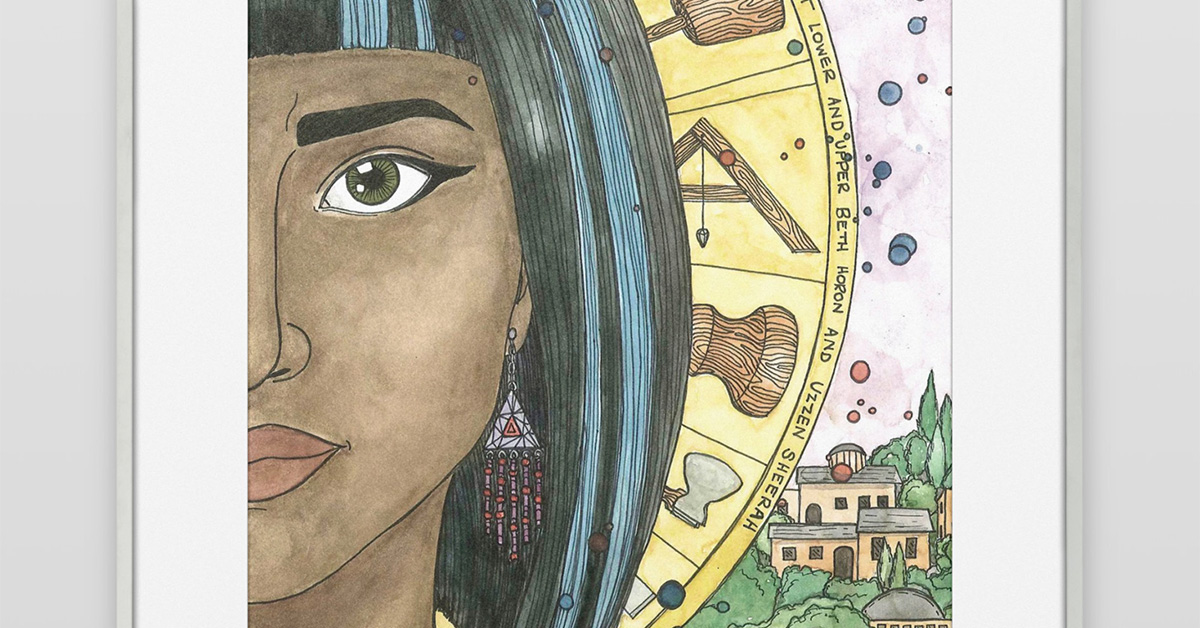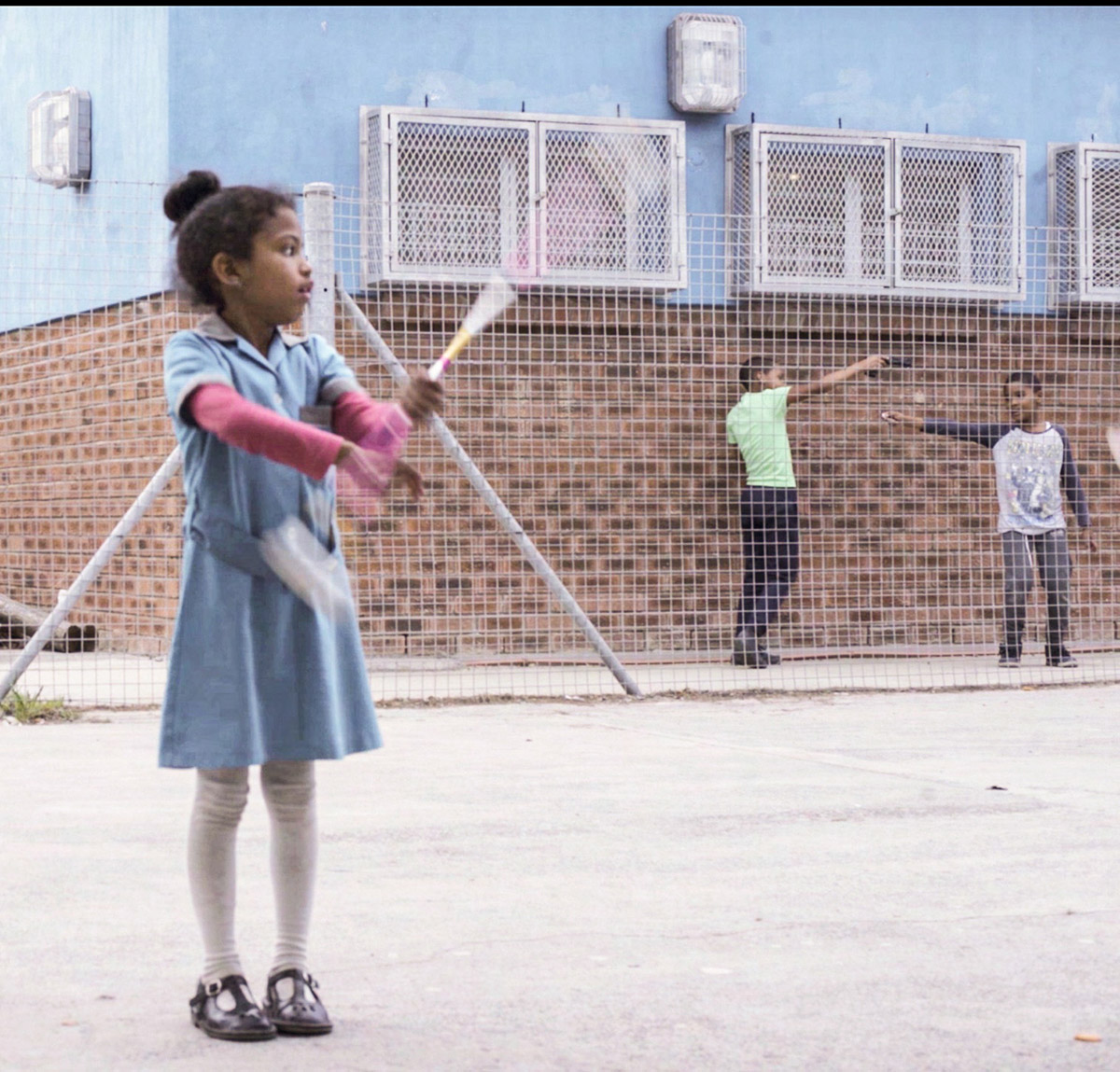

Jan Kalish is a South African and Canadian award-winning photographer who loved being a school drummie. Her daughter, Taryn Kalish, is a London-based filmmaker who recently won an Emmy Award along with the team responsible for the show José Andrés and Family in Spain. Jan and Taryn share a love of encouraging youth especially in underprivileged places.

Craft, the creation of the beautiful and useful with practice and skill, has lifted many out of poverty, saved families and, most importantly, conferred dignity and self-respect upon those in want.
The Cape Flats, an impoverished area located to the east of Cape Town, South Africa, is not a hub for craft. The school playing field is a gang boundary line and battleground: boys, afire with drink and drugs, cross the lines to lose their lives settling gang scores. Children watch from the school window, and then, as yet another life is needlessly lost, and another mother’s heart irreparably breaks, the police are called and the children go back to play.
Yet if you listen with eyes shut you might hear the sound of hope: marching steps, heavy and light, long and little legs in mismatched rhythm, a drum majorette practice at the beginning of a new school year. This is not a posh, polished group from the suburbs in glimmering silk but a band of faith-filled, laughing girls, aged 5–13, from the Dr Van Der Ross Primary School. This is the good gang of Drummies, learning, practising and displaying their skills.
Decades ago, Carol and Morisha began a majorette squad with 25 girls and a dream: that teaching these girls a craft and making them a team might rescue some from their harsh surroundings. Morisha is coach and mentor, a skilled and zealous trainer; Carol is initiator, supporter and school vice-principal these 23 years. The teams began tentatively, with little support and no funding. They endured scorn, painstakingly working out the majorette steps. Gaining confidence with their hard-won skills, the girls carried carved broomsticks as proudly as if they were the gold-capped maces of more affluent teams. Equally proud mothers made costumes, and girls blossomed into skilled potential winners, heads held high.
Dr Van Der Ross is the only school combining all ages in one team, enabling more to compete and the older girls to mentor the younger. First practices require no ability, only enthusiasm and determination; submission to fair but fierce discipline and, of course, long practice hours. The craft demands much of the girls and their parents, too. Many can only watch, with competition entry fees and costs of transport and costumes required to make annual national finals beyond their reach.
However, the alternative threat of their children becoming victims on the streets, lured into “gangsterism” or drugs, motivates parents to make sacrifices. Carol notes that families take out extreme loans, doing whatever possible to facilitate their children joining. Parents accompany the girls on bus trips, sew, help fundraise and wait and watch for long hours of practice. In this crucible, for a time, they are separated from the chaos on the streets around them. Carol says, “Our parents believe in their children and fight through the impoverishment of our lives to get the best for them.”
A mother speaks from her home in the more dangerous Delft area. She describes her daughter doing schoolwork, concentrating to block out the sound of sudden gunshots in the background. She says, “We pray and trust God for our safety,” adding, “I walked three hours a day to get my child to school and with every step I asked God to make a way for her to attend Drummies and then to go on to high school!” A seamstress, she buys fabric enough to make one dress at a time, selling it to make enough for more fabric and a small profit split between living and Drummies.
This craft brings hope to families: a chance to learn, perhaps gain recognition and practise believing in themselves. Parents watch together as their children grow in strength and self-respect, breaking into dance, cheering as well as marching in unison, developing a pride almost unknown in a world where strife and poverty are daily challenges.
Here two strands of narrative intersect and, for a time, wind together.
Half a world away, another craft, filmmaking, is being mastered and honed by two young women, Taryn and Liliane, graduate students in science media production studies at Imperial College, London. Seeking a subject for her graduating documentary, Taryn glimpsed a faded photo of her mother as a drum majorette in South Africa – and then an Instagram post of a drum majorette squad overcoming huge challenges in the Cape Flats. Gripped by the young girls in the photos – impoverished but strong, challenged yet exuberant – she felt compelled to tell their story.
It took Taryn and Liliane a dozen applications and months of battles to obtain faculty permission for safety and insurance purposes, without which they couldn’t travel. They settled on taking limited gear – in an area where murder can be committed for a cell phone, check-in safety measures, early curfews and private security support: promising not to leave the school grounds, stay overnight or enter homes. They never booked the security, and immediately, had broken every rule.
Early on their first morning after arrival, still orientating themselves to their task, Taryn and Liliane boarded a bus of excited drummies heading to the national competition in Oudtshoorn. Over the long bus journey, they came to know, admire and love Carol and Morisha and their team of dancing, singing girls. Because the school generously got them a room at the same venue as the team, they could synchronise their schedules and continue to strengthen their bond with the girls and their families, which proved important for later interviews.
While the drummies had to build up resources to excel in their craft, the filmmakers had to strip theirs down. They took only what they could carry and move around with – quickly, if need be, out of danger: two Sony cameras, a tripod, one external microphone, 50 mm lenses, hard drives and a Zhiyun gimbal. At Oudtshoorn, there was only one electrical outlet in each room, making charging the equipment challenging. They finally managed to negotiate with their neighbour, seven-year-old Ra’eesha, to use the plug in her room as well, without which filming may have been impossible.
About the equipment, Taryn noted:
In theory, we were happy to be working with two different Sony cameras. However, their differences … proved a major issue with editing. Although the cameras were ideal for their discreet size, we learned – far too late – these small cameras as tools are much more susceptible to sensor dust – and hair – than others. The small size also meant the LCD screen was equally small, making it a bit more difficult to tell if all was in focus.
Working in these conditions, shooting handheld, without specialty gear: audio, dollies, or reflectors and a running approach, hearing about days of extreme violence while focusing on accurately telling the stories of victory in these young hearts was difficult to accurately balance.
Surrounded by challenges and not knowing what to expect from the girls’ responses, they decided to craft the film unscripted, day by day, with a decision to only film an older, quiet girl with the youngest, to tease out the mentoring relationships. They benefitted from their relationships with the children, families and coaches. Carol communicated their concept to the families, which allowed the genuine circumstances to be captured. The girls were open to being filmed and excited to learn to use the cameras.
Like many crafters, the filmmakers had to be resourceful:
Most of the interviews took place after school, so we used the dusk winter lighting as the key light. This worked well if the interview was less than an hour. We had no other choice, also relying heavily on the audio from our cameras. Thankfully, we had help to sound mix this combination of synced and unsynced audio back in London.
Back in London, the film took Taryn nearly four months to edit, carefully crafting each frame; coaxing short edits to capture the vulnerabilities and the hearts of the people they had met. The result was a raw, striking film, true and honest. The lack of budget, fancy gear and assistants – other than over-eager children – produced an unblemished telling. However, what these crafters did with little, expressing the heart of this story, went beyond any expensive technicalities.
The finished feature-length film was screened in London, Germany and in Cape Town, where the drummie girls saw their lives on the big screen – although many will be unable to afford to enter a cinema again. Importantly, it received Carol’s approval. In addition, the documentary, Drummies, won four awards at the Hollywood New Director’s Film Festival, as well as the Audience Choice Award at the New York Lift-Off Festival and has been shown at film festivals around the world. This film and further evidence of her skill in her craft won Taryn the coveted British “One to Watch” TV Documentary Award.
This winter, 45 drummies, 5 teachers and 10 young coaches who help with costumes, dressing and food on-site, travelled for two days to Durban for nationals. The organisation “67 Blankets for Mandela” with short notice, donated hand-made blankets for the long bus journey. Friends rallied: a photographer stopped work and provided lights to enable the girls to practise by night; another friend delivered them. Some brought sweet treats, and two friends kindly added throw blankets for girls perpetually cold in the winter. Over recent school holidays, they had been practising so intensely that they – and Morisha – slept in the school hall, rising early, going to bed late, honing their rhythm, their dance steps, baton throwing and unison.
After a week of unrelenting competition pressure, the Dr Van Der Ross Team, with their mismatched age groups, little legs marching double time to keep up, triumphantly won the nationals competing against 93 teams, some of which had professional coaches. The hard work, cheering, enthusiasm and fighting dedication had found the mark in these young hearts; their skills had earned them triumph and the national trophy. Victory belonged to all at Dr Van Der Ross in the Cape Flats: the trophy was displayed at school and in community parades – and recognition poured in. Carol and Morisha expressed pride in their girls’ skill, perseverance and exemplary manners.
To date, the craft of the drummies, however refined, has only intrinsic rewards. The girls cannot use it to attend high school, support their families or even pay for transportation to the national competition. However, for these girls, the sacrifices are worthwhile. Their craft provides them with dignity and accountability – along with what Carol laughingly calls “Mean Girl Power,” the strength to steer clear of constant street danger. Many have great academic potential, though sponsorship is critically needed for drummies and a chance at further education.
Through this film, intertwining the craft of the drummies and the film makers, Taryn has been able to gather some donations for the drummies, providing meals for children during COVID and augmenting sponsorship for a student chosen for the South African national team to compete in Europe. These rewards make the countless hours, long days, nights and working weekends, on the field and crafting the film, to build hope – and perhaps a future for these girls – worthwhile!